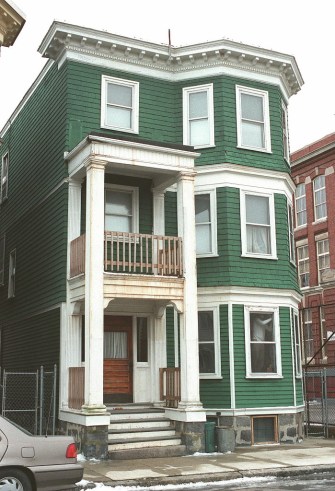 “A picture is worth a thousand words.” – Old Photograph Found In Attic Key to Victory
“A picture is worth a thousand words.” – Old Photograph Found In Attic Key to Victory
I handle a fair amount of Massachusetts boundary line and adverse possession disputes. For those who don’t know, adverse possession is a legal doctrine in Massachusetts where one property owner can make a claim of ownership over his neighbor’s land if such use was “open, hostile, adverse, notorious and exclusive” for 20 or more years. These disputes often come up where neighbors don’t know the true location of their property line, and one neighbor puts up a fence, retaining wall or has essentially annexed the land of the other neighbor.
In my most recent case, I am defending a gentleman whose next door neighbor claims adverse possession to an area about 15 feet into my client’s side yard which includes a small portion of the neighbor’s driveway. The dispute arose because my client wanted to put up a 6 foot privacy fence along the lot line. The neighbor sued, asking the court for a preliminary injunction to stop the installation of the fence.
My opponent claimed adverse possession dating back to when he purchased the property in 1985. The first problem I had was that my client bought his property in 2009. Thus, in order to poke holes in the claimed 30 year period, I had to track down the former owners of his property. Luckily, I found them — a charming elderly couple living in Medway. I met them over the weekend and sat down at their kitchen table with the case file and photographs. They said my opponent was a liar and disputed virtually everything he said in his lawsuit.
The elderly man went up to his attic and found several old photographs showing his then young grandchildren playing in the sideyard. That’s the picture in this post. In the background of the photo dating back two decades, you can see a fence in the disputed side yard area. The fence essentially destroyed my opponent’s adverse possession claim because he was physically prevented from using the disputed area, and thus, could not prove 20 years of uninterrupted and adverse use. When I showed the photos to opposing counsel, the response was that his client didn’t remember the fence despite the fact it was there for at least 10 years of his ownership. How convenient!
After working all weekend on the case and armed with the photographs and affidavits from the prior owners, I felt optimistic heading into the injunction hearing before a judge in Norfolk Superior Court. In order to obtain an injunction, the plaintiff is required to show a “likelihood of success on the merits.” The bottom line was that I caught my opponent in a lie, given that he never disclosed the existence of the fence in his original complaint, then came up with the convenient excuse that he didn’t remember it. The judge ruled that the neighbor could not establish adverse possession at this juncture of the case, and denied his motion for an injunction.
As with every adverse possession case, relentless preparation and determination to investigate the history of the property is critical. I was more prepared than my opponent, and that is one of the reasons why I won this round.
_______________________
 If you are dealing with a Massachusetts boundary or property line dispute involving adverse possession, please contact me at [email protected] or 508-620-5253. I’ve handled scores of these cases successfully through trial and appeal.
If you are dealing with a Massachusetts boundary or property line dispute involving adverse possession, please contact me at [email protected] or 508-620-5253. I’ve handled scores of these cases successfully through trial and appeal.
{ 0 comments }




















